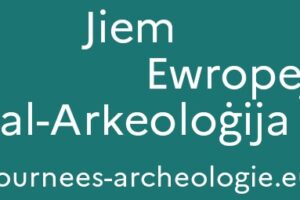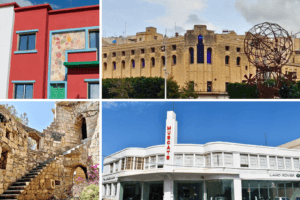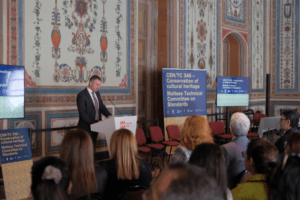
MCCA World Standards Day 2023
- Categories Blog Post
- Date October 16, 2023
The Superintendence of Cultural Heritage attended a seminar celebrating World Standards Day 2023 organized by the Malta Competition and Consumer Affairs Authority (MCCAA) with the theme: the contribution of standards to the well-being of society.
Cultural heritage management in all its diversity depends a lot on having standards in the various practices required in safeguarding, preserving, caring, and making heritage accessible to the public. The MCCAA seminar was highly encouraging and inspirational to expand efforts within the cultural heritage sector to reinforce the development and implementation of standards.
The speakers on the panel spoke on how standards affect our daily lives in a positive manner irrespective of the type of work. For instance, standards ensure safety and quality and are of benefit to clients, service providers and regulators. Those who abide by standards have a better place when it comes to competitiveness as standards provide a gauge that protects consumers by differentiating good practitioners from rogue practitioners and enabling enforcement.
Standards are the rules of the game and are enablers. Standards provide ‘value’, they define the task or item, describe quality, provide a measure, aim at doing things right, promote good governance and are therefore fair. The need to abide by specific standards, should be key in public procurement, they offer credibility and confidence and are thus positive measures of good and best practice that also provide legal credibility in disputes.
Apart from having in place national standards, Malta had to adopt, adapt, and comply with several other standards, regulations, and directives for many sectors since joining the EU in 2003.
Through the facilitation by the MCCAA, Malta is participating in the drafting of pan-European standards under the European Committee for Standardization (CEN) by means of national sectorial committees such as that for cultural heritage conservation and restoration made up of representatives from the University of Malta, the Superintendence of Cultural Heritage, Heritage Malta, the Restoration and Preservation Directorate, the Planning Authority and the Malta Association of Professional Conservator-Restorers. Standards are written by groups of specialists by means of consultations and consensus through cycles comprising of drafting, revisions, corrections, and updates. Participating in the CEN standards, Malta benefits from the contributions of a pool of pan-European experts apart from contributing our own share and interests.
One speaker advised that before embarking on raising awareness of the community about standards, the regulatory entities should be the first to be more aware, understand, accept, and implement standards. This is a core mission of the Superintendence of Cultural Heritage as a requirement of the Cultural Heritage Act.
Standards necessitate up/re-skilling and there is a need for entities to foster capacity building in standards through CPDs. As one speaker commented: standards do not water down creativity but provide benchmarks and an opportunity for ambition. Training and compliance with standards come with financial and human resource commitments but this should be seen as an investment in market resilience and service quality.
Apart from facilitating cooperation with overseas standardization entities, the MCCAA also helps local entities develop home-grown standards to suit local scenarios and offers awareness courses about standards to regulators.

Corinne Caruana is an Executive Officer working in the Officer of the Superintendent. Her multifaceted role mainly revolves around marketing and otureach endevaours, through which all digital marketing output is produced.



